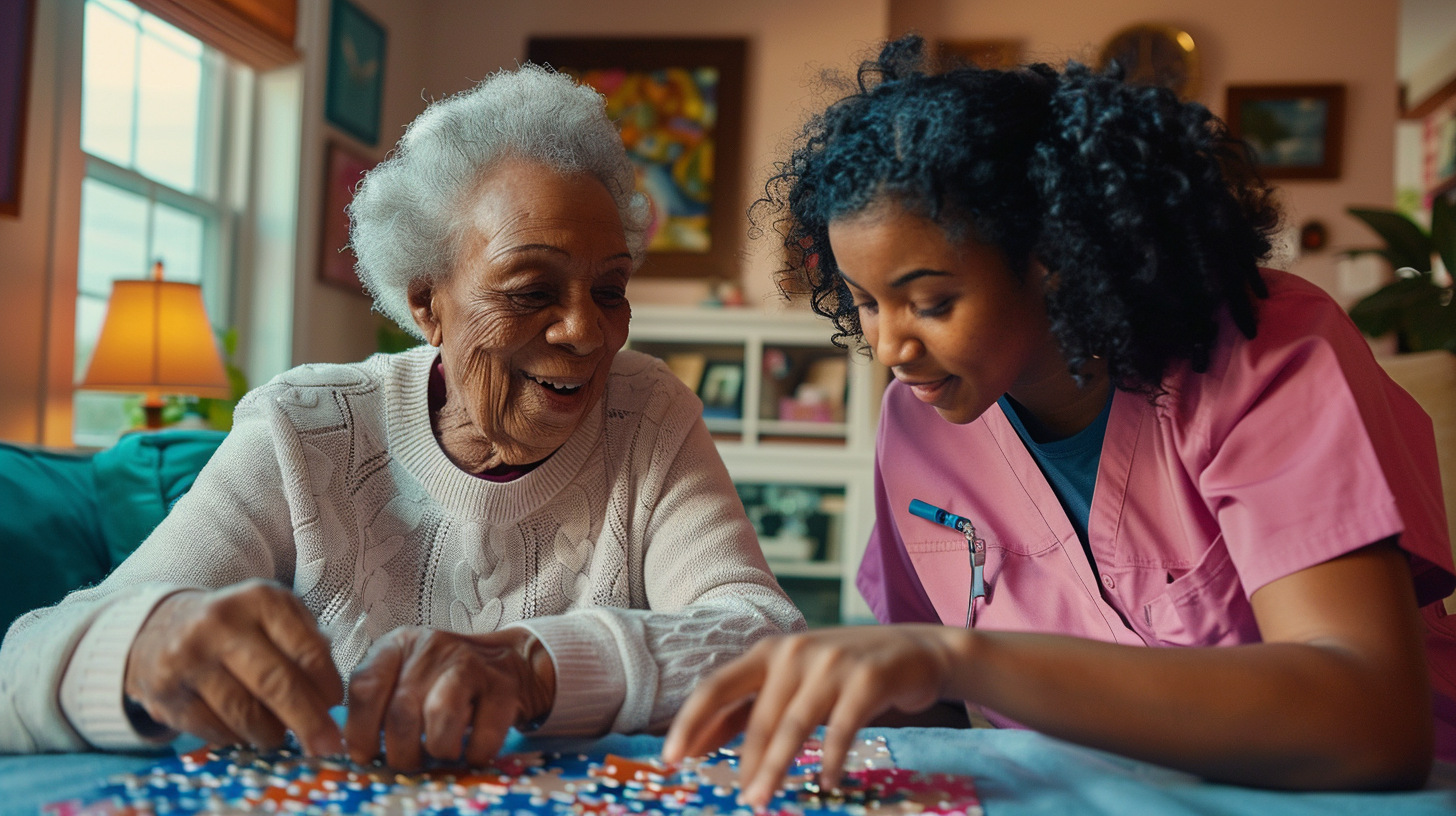Creating a Cognitive Stimulation Plan for Aging Adults
Category:

Cognitive stimulation plays a big role in mental health and emotional well-being for seniors, but it also helps to slow down cognitive decline. Companion care at home can help families to put together a plan for cognitive stimulation, keeping seniors healthy and happy as they age in place.
Understanding Cognitive Stimulation for Seniors
Cognitive stimulation is a broad term, but it basically means involving seniors in engaging activities that are challenging and interesting for their brains. These activities might involve memory, attention, problem-solving, and learning new things. The goal with a cognitive stimulation plan is to create a unique plan that is enjoyable and that offers measurable benefits.
Assessing Abilities and Needs
To start, it’s important to know where seniors are and what they need. This initial assessment might be something that a senior’s healthcare provider does or it might involve observations from family and friends. Seniors might express what they want from a cognitive stimulation plan, too, and that should definitely be included.
Setting Solid Goals
Knowing where they’re starting is important, but where do they want to go? Short- and long-term goals help seniors and home care providers see what they’re trying to accomplish. Seniors might want to keep their brains challenged in the short-term, for example, and have goals related to preventing cognitive decline as a long-term goal. Seniors might want to explore creative activities or they might want to be more socially active. All of these goals can be part of a cognitive stimulation plan.
Choosing Activities
There don’t have to be any big rules around activities, either. For instance, seniors might want to make sure that no matter what they’re doing, it’s something they enjoy. That makes choosing activities even easier. Some ideas to consider could be word association games, trivia, jigsaw puzzles, logic games, reading and discussing books, or learning to play an instrument. The sky can be the limit.
Building Routines
Taking consistent action every day is a huge help with any goal, but especially goals related to cognitive stimulation. Seniors might not do the same activities every day, but their plan might involve doing something every day that stimulates their brains. So, one routine might be that at a certain time every day, they take time for brain activities. Mondays might be art, Tuesdays might be music, and every other day is another activity. Or, depending on their goals, seniors might choose to practice learning a language every day. No matter what the routine is, the consistency and commitment are what matter.
Tracking Progress and Making Adjustments
Keeping track of progress helps seniors to see that they’re making progress toward their goals. Companion care at home can help seniors to stay on track with their goals and notice where they’re making improvements. It isn’t always easy to see that from a single perspective. If the plan needs adjusting, tracking progress helps everyone to see that it’s time.
Creating a formal cognitive stimulation plan might seem complicated at first, but really it’s all about finding what helps seniors keep their brains going strong. Companion care at home can help aging adults figure out what they enjoy, what helps, and what doesn’t, so that they can hit their goals.
If you or an aging loved one are considering companion care at home in Larchmont, NY, please contact the caring staff at Griswold Home Care for Scarsdale & Yonkers today. (914) 337-5028.
Subscribe
Date: November 15, 2024
Category:


